
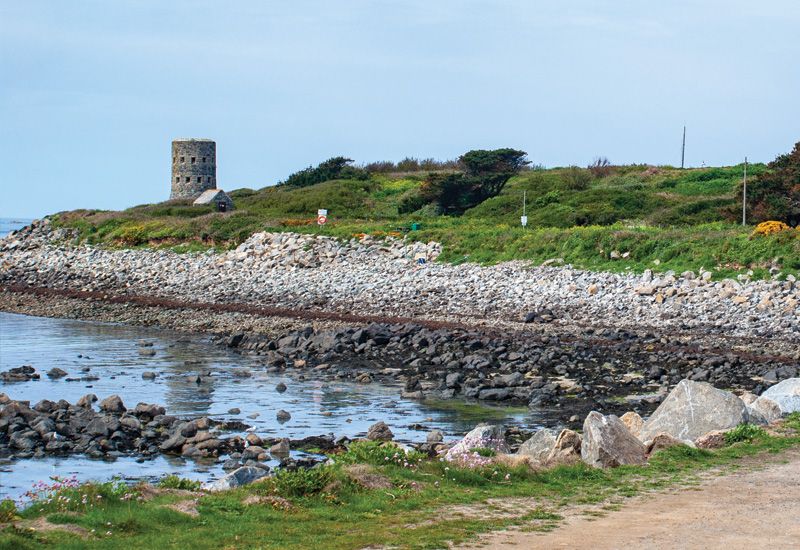

Granite will continue to be quarried on-island, subject to planning approval, with Ronez preparing to move its stone plant to the Chouet Headland.
The States has approved the principle of future quarrying in Guernsey by 27 votes to nine.
Ronez is drawing up a planning application to use land at Chouet - which is co-owned by the States - as the island's next source of aggregate, granite and concrete.
Les Vardes Quarry will be completely depleted of granite resources within seven years and Ronez Director Steve Roussel says the firm will need to relocate its stone plant in the next 18 months to access the site's final reserves.
It will result in higher levels of aggregate needing to be imported temporarily in order to meet supply from local construction. It is not yet known how long this will last or what level of importation will be needed.
The other option presented to the States was full importation of aggregate materials when Les Vardes is depleted.
The beginning of the debate, which commenced on Wednesday afternoon and finished a day later, saw an impassioned speech from Deputy Sam Haskins which draw plaudits from many of his States colleagues. He questioned whether the States should be approaching the situation with a different solution.
“Is concrete made with local aggregate and imported cement the future of island construction - are there other alternatives?" asked the Vice-President of Environment & Infrastructure, who voted against his Committee's proposal to the States.
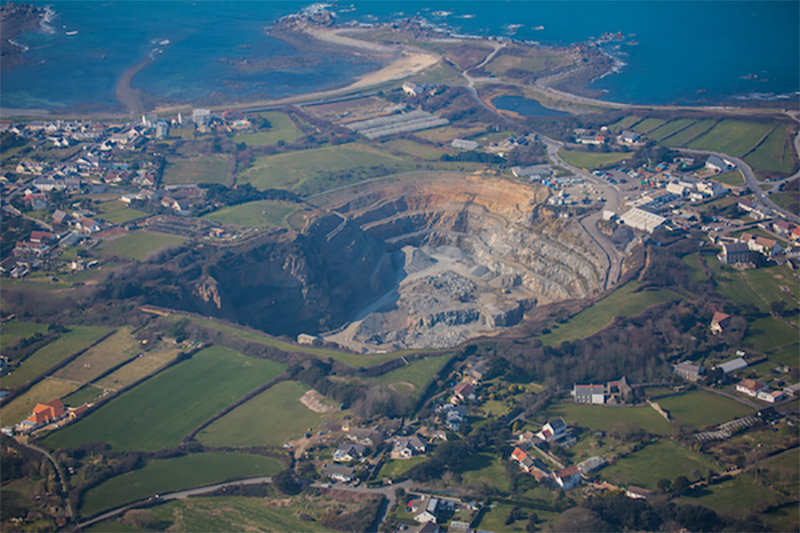
Pictured: The stone plant at Les Vardes will need to be moved before the final reserves of granite can be accessed underneath.
"There is hemp, paper, fibre, waste plastic, post-consumer glass – so why are we not seriously looking into these examples instead of going for the same old granite. Recycling rates are growing which means less new aggregate is needed."
With the Chouet site having a projected operational life of 30-35 years, it was also asked whether the island's Government was simply postponing the inevitable prospect of full importation in the decades to come.
"I can understand that argument," said Mr Roussel. "However, I was quite concerned if we had chosen to go for full importation now. We would struggle to import enough material to meet the supply.
"There’s a whole load of issues that would have to be overcome that are going to be quite difficult. We are finding, particularly in the last year, that we are struggling even to import the amount of sand that we do at the moment, so the idea of importing four or five times as much material, I’m not sure we would get the ships to actually do that.
He added: "We have storage capacity for a steady stream of aggregate from the quarry but if we’re importing in large blocks, we haven’t physically got the facilities to actually store that. I’m not clear where we would get that in the short-term."
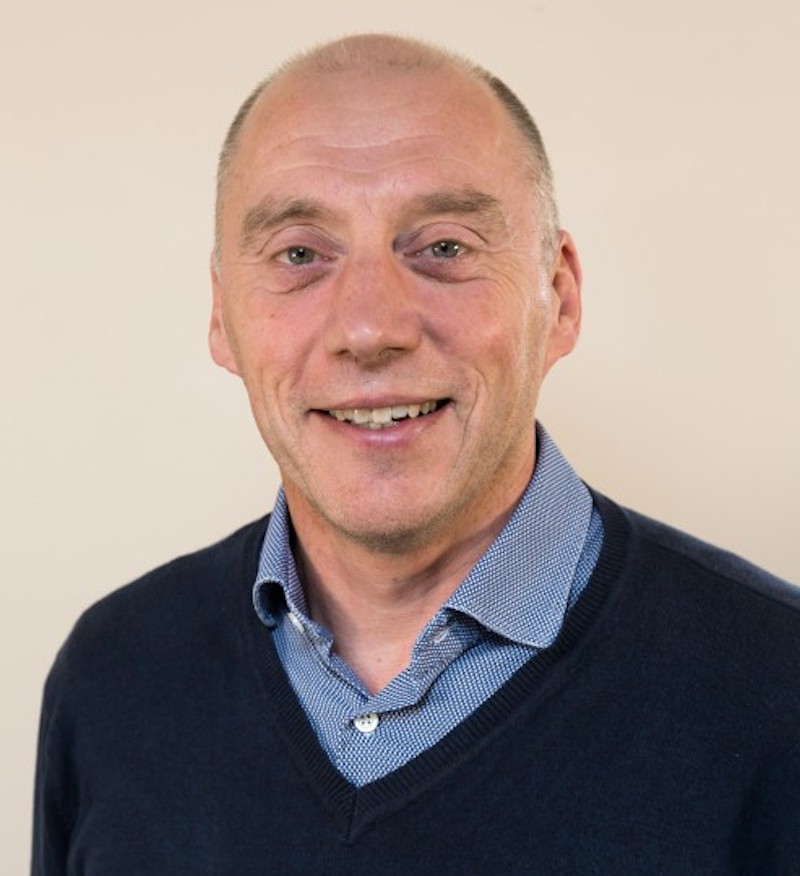
Pictured: Ronez Director Steve Roussel said it would take up to ten years for the island to upgrade the core infrastructure needed to cope with full importation of aggregates.
Mr Roussel said the States had left it too late in the day to approve full importation, as the infrastructure is not in place.
"If we wanted to go down the route of importation, I think it would be a five to ten year project to get the infrastructure in place. We started discussing it with the States seven years ago. The harbour, theoretically, at the moment could do it, but it is quite a weak link in that supply route."
A similar point was made in the Chamber by Deputy Nick Moakes. He also noted the estimated 20-25% increase in the cost of aggregates via importation - costs which would inevitably be passed on to customers.
Deputy Andrea Dudley-Owen made the case against quarrying at Chouet. She argued that it was not wise to completely deplete the island's natural resources, suggesting that Ronez "has had a hold over this sector for decades" and that the island should be looking "to do more to waste less and be more economical" with alternatives materials.
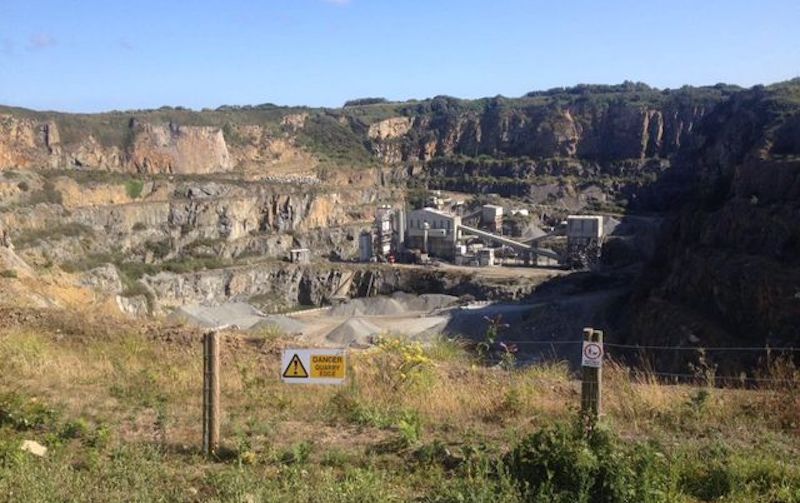
Deputy Simon Fairclough noted that, in the Guernsey context, the proposal represented a large scale development in a sensitive and popular area.
He said the environmental questions overhanging the debate are complex, noting that there is an agreement between E&I and Ronez guaranteeing that negative localised impacts “are minimised, mitigated and more than offset”.
Refusing to quarry in Guernsey would, he concluded, simply mean that Guernsey imported materials that were quarried elsewhere; moving the environmental issues “out of sight and out of mind” instead of addressing them.
It was a point also made by Deputy Moakes. "Someone will have to dig a hole and mine it somewhere. It will then need to be transported by sea, unloaded at the harbour, and we would need to store far more than we would need to guarantee supply."
The future of local quarrying was ultimately approved by 27 votes to nine.
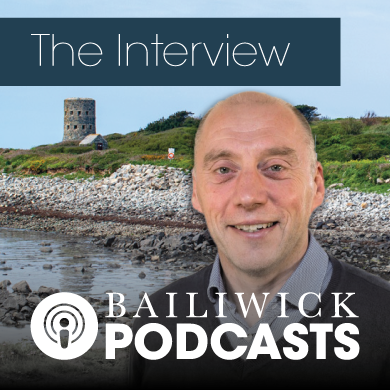
Pictured: You can listen to Express' full podcast interview with Steve Roussel here.
Comments
Comments on this story express the views of the commentator only, not Bailiwick Publishing. We are unable to guarantee the accuracy of any of those comments.